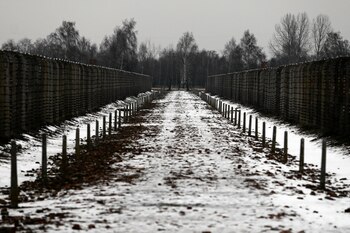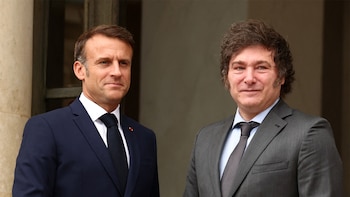
“On one occasion Adolf Hitler visits northern Italy and Mussolini shows him a motorway built from Milan. Hitler saw that, went to his country and filled it with highways, airports and made it the first economic power in the world”, so was Premier Aníbal Torres praised the figure of the genocidal Adolf Hitler. Despite his medium apologies, the president of the Council of Ministers has been criticized by Peruvian citizens, and the embassies of Germany and Israel in Peru , and the news has gone around the world.
The writer and journalist Hugo Coya has been an authoritative voice to talk about anti-Semitism since the publication of his first non-fiction book Estación final, an investigation that revealed the existence of 23 Peruvian victims in concentration camps during World War II; and with his latest novel The last one in the tower that explores this problem that continues to exist despite the years: hostility towards the Jews.
“(The words of Aníbal Torres) are an affront to the millions of victims of the Holocaust and to the 23 Peruvians who died murdered by the Nazis in the death camps. He repeated a fallacy that is based on a theory held by some proponents of fascism; in the sense that Hitler was the one who imitated Mussolini and not the other way around as it has been stamped in history,” he told Infobae.
The journalist also recalled that Hitler had a lot of “sympathy and admiration for Italian fascism” and that in the early years of the Third Reich, “many elements of the symbolism of Nazism” were similar to fascism.

“Mussolini praised Hitler. There was mutual flattery at a distance because they were parallel regimes. Until they met in 1934 for the first time. In total, they met a little more than 16 times,” he said.
Coya said that Aníbal Torres would have referred to the most important meeting between Hitler and Mussolini in 1938, where the Italian dictator “shows him the progress and the prodigious constructions, including that of the Milan-Brescia motorway.”
However, the writer of Dust in the Wind and Genaro stated that Hitler did not make any progress in Germany as the premier would have him believe.
“What Aníbal Torres says is false. It is true that Hitler wanted to build many highways and roads; that his goal was 1,000 kilometers to generate 600,000 jobs, but only 120,000 workers worked with pickaxes and shovels; and many died from disease and hunger, as well as several strikes. Others were forced into forced labor,” he recalled.

The journalist agreed with Jack Falkon, representative of the Jewish Association of Peru, who gave the example of the Incas and their huge road network and that he may have been summoned by the prime minister.
“I had many examples. It was not necessary to go to Europe. Peru, at the time of the Incas, had the huge road network Qhapaq Ñan, a network of roads that until now remains to unite different peoples of South America,” he added.
Coya was of the opinion that Aníbal Torres' apologies were “deplorable” and there was no “condemnation of this outburst” on the part of the head of the PCM.
“He would have to publicly apologize, and condemn fascism and Nazism, as well as the victims of the Holocaust, whom he has offended by setting an example of Hitler's alleged development in Germany,” he concluded.
KEEP READING
Últimas Noticias
Debanhi Escobar: they secured the motel where she was found lifeless in a cistern

The oldest person in the world died at the age of 119

Macabre find in CDMX: they left a body bagged and tied in a taxi
The eagles of America will face Manchester City in a duel of legends. Here are the details

Why is it good to bring dogs out to know the world when they are puppies



